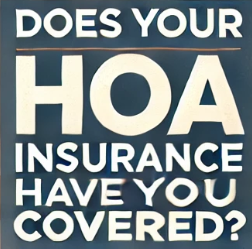Electric vehicles (EVs) are rapidly gaining popularity, and with that comes a growing need for charging infrastructure. Homeowners’ Associations (HOAs) play a crucial role in managing community living, and understanding the implications of EV chargers is essential for both residents and the association itself.
1. HOA Considerations:
- HOAs often have guidelines. It’s crucial to establish clear rules for the installation of EV chargers to maintain community safety and aesthetics. This might include:
- Electrical safety: Ensure proper installation and maintenance of charging stations to prevent electrical hazards.
- Fire safety: Implement measures to mitigate fire risks associated with charging stations.
- Location restrictions: Where chargers can be installed (e.g., garages, designated parking spots).
- Appearance guidelines: Color restrictions, size limitations, and acceptable mounting options.
- Noise: Some chargers may produce noise during operation. Establish guidelines to minimize noise disturbances for other residents.
- Parking:
- Guest parking: Address potential conflicts if guest parking spaces are used for EV charging.
- Reserved parking: Consider allowing residents to reserve dedicated parking spaces for EV charging.
- Maintenance:
- Responsibility: Determine who is responsible for the maintenance and repair of charging stations (residents or the HOA).
- Cost: Establish guidelines for the cost of maintenance and any associated fees.
- Legal and Regulatory Compliance: Stay informed about local, state, and federal regulations regarding EV charging infrastructure.
2. Insurance Implications:
- HOA Liability:
- Review existing insurance policies: Determine if current HOA insurance adequately covers potential liabilities related to EV charging stations.
- Consider endorsements: Discuss with your insurance agent/broker the need for specific endorsements to cover potential risks, such as:
- Electrical hazards: Fires, electrocution, short circuits.
- Property damage: Damage to the charging station itself or surrounding property.
- Bodily injury: Injuries to residents or guests due to malfunctions or accidents involving charging stations.
- Third-party liability: If the HOA installs and maintains community charging stations, it may be liable for any accidents or injuries that occur.
- Resident Liability:
- Encourage residents to review their homeowner’s insurance policies: Ensure their policies adequately cover potential liabilities related to their privately installed EV charging stations.
- Consider requiring proof of insurance: Require residents to provide proof of adequate insurance coverage for their EV charging stations.
3. Benefits for HOAs:
- Increased Property Values: EV charging infrastructure can enhance property values, making the community more attractive to potential buyers.
- Reduced Environmental Impact: By encouraging EV adoption, HOAs contribute to a greener and more sustainable community.
- Improved Resident Satisfaction: Providing convenient and accessible charging options can significantly improve resident satisfaction.
4. Recommendations for HOAs:
- Form a Committee: Create an HOA committee to research and develop a comprehensive EV charging policy.
- Consult with Experts: Seek guidance from electrical engineers, legal professionals, insurance agents, and EV charging specialists.
- Engage with Residents: Conduct surveys and hold meetings to gather resident input and address concerns.
- Develop a Clear Policy: Create a well-defined and easy-to-understand policy that outlines the rules and regulations for EV charging within the community.
- Regularly Review and Update: Regularly review and update the EV charging policy to adapt to evolving technologies, changing regulations, and evolving insurance needs.
By proactively addressing the needs of EV owners, including careful consideration of insurance implications, HOAs can create a more sustainable, convenient, and desirable living environment for all residents.
Community EV Charging FAQs
Do you have to pay to use community EV charging stations?
In most cases, yes. If an electric vehicle service provider (EVSP) installed the unit, they typically manage the station’s network, maintenance, and operations, including collecting payment from users.
Are HOA boards responsible for ensuring professional installation of EV charging units?
While not directly responsible for privately owned units, HOAs can require installation by qualified professionals. They may request information from homeowners on the chosen contractor to ensure they are experienced, licensed, and insured.
Are community associations legally required to accommodate EV charging requests?
EV charging laws vary by state. Some states (e.g., California, Florida, Colorado) prohibit HOAs from unreasonably denying requests. Consult your HOA attorney for specific guidance.
Who pays for EV charging installation?
Homeowners are typically responsible for the cost of installing charging ports on their own property. HOAs are responsible for the costs associated with installing public charging stations in common areas.
Can homeowners install EV charging stations on their private property?
Yes, after obtaining approval from the HOA board and complying with any applicable guidelines.
Disclaimer: This article is for informational purposes only and does not constitute legal or professional advice.




